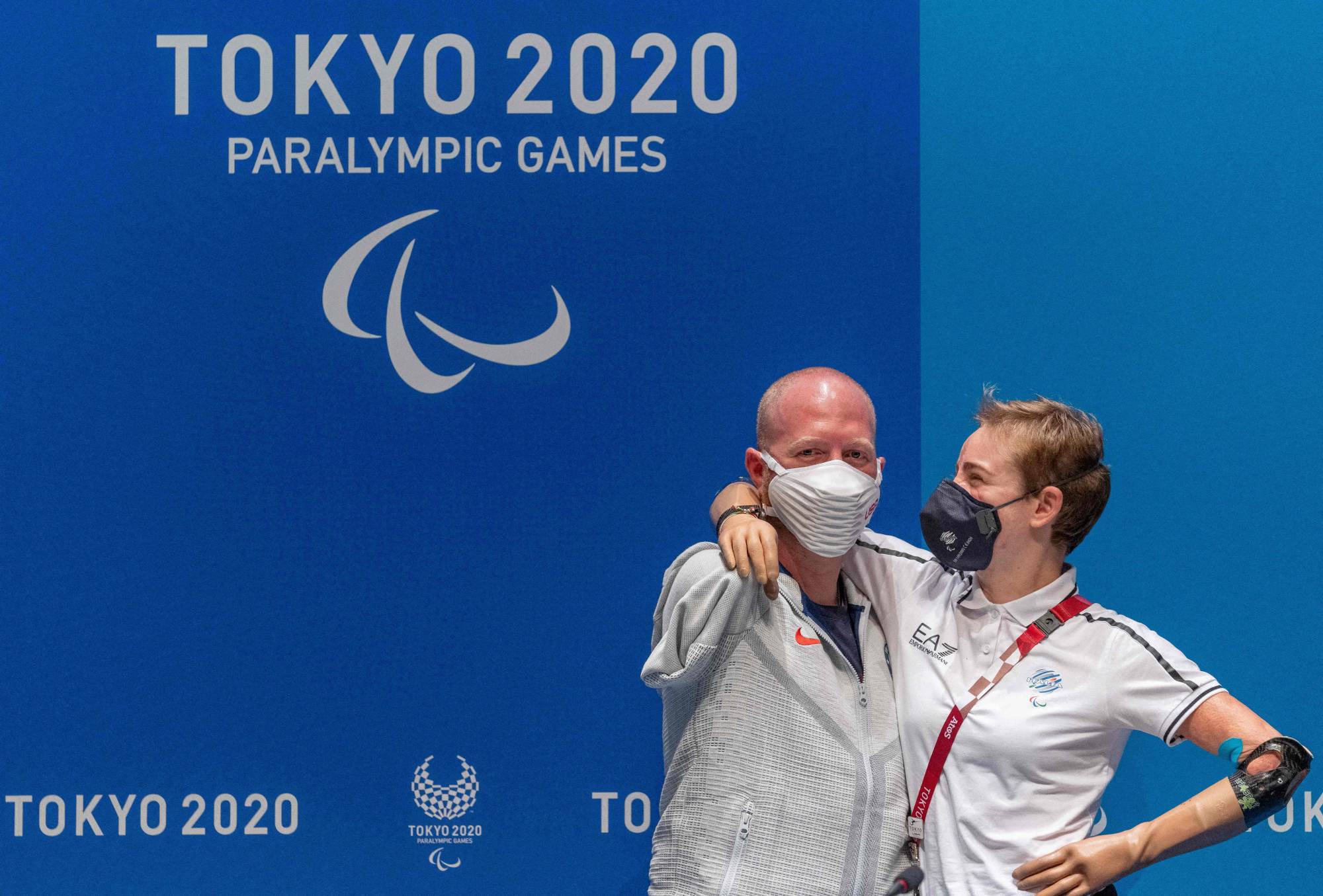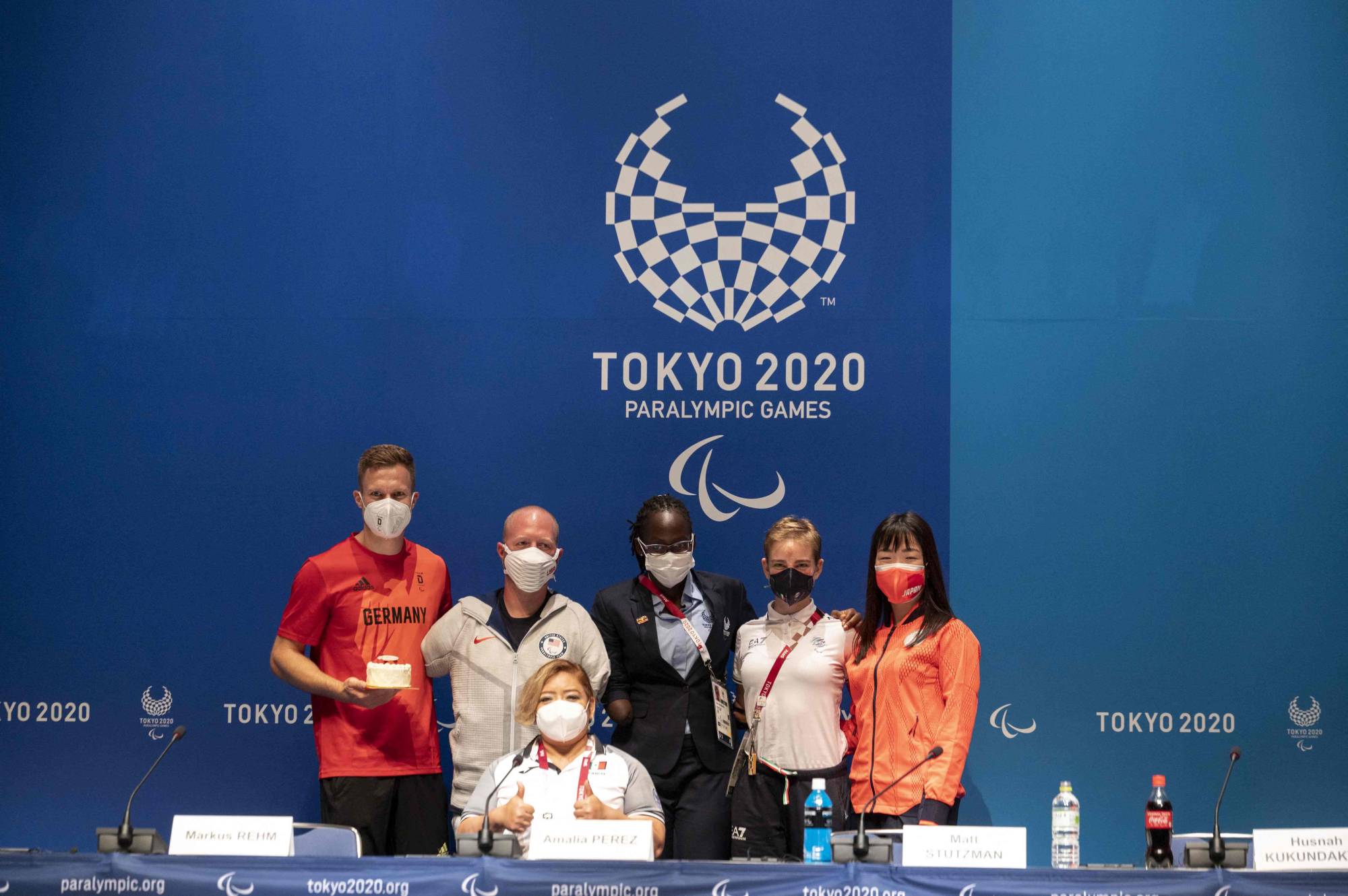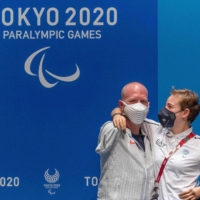Matt Stutzman, who was born without arms, said there was a time when he thought he would become the next Michael Jordan and be the best basketball player in the world.
After realizing that wasn't possible, the American eventually found his true calling: archery.
"I saw a guy on TV with a bow, and something just clicked," Stutzman said during a news conference on Sunday. "I was like, you know what, you're supposed to have hands to do that, but it sounds like a challenge and I feel like I could be good at it."
Good is an understatement.
Stutzman handles his bow with his feet. He uses his left foot to place arrows and draws the string back and releases with his right foot and an aid that’s tied to his right shoulder.
Stutzman made his debut for the United States in 2011. In 2012, he won a silver medal at the London Paralympics in the individual compound open competition. He won the world championship in that event in 2015 and has a bronze from the team competition in 2019. Stutzman also holds the Guinness Book of World Records title — among both able-bodied athletes and those with impairments — for the longest accurate archery shot at 310 yards.
Stutzman doesn't let his impairment slow him down, and the same can be said of every Paralympian. They are the best of the best at their sports and each has had to overcome some physical hardship — whether congenital or acquired — to get where they are today.
While the Paralympics are just as much about competition and athletic achievement as the Olympics, they also serve as an important source of inspiration for people with disabilities.
"Even I was told so often that I can't do things, I can't do that, I can't do this and I should try something different," German long jumper Markus Rehm said. "I should not go wakeboarding, I should not go snowboarding, I should try something different.
"I want to encourage young people to just try. Don't ask others, just try for yourself."
Rehm's right leg was amputated after a wakeboarding accident when he was 14. Now at age 33, he's a three-time Paralympic gold medalist and will be trying to win a fourth in Tokyo.

"I never felt that I'm handicapped or disabled or whatever names there are for who I am as an amputee," Rehm said. "I always tried just to be the best of myself, and that's what I'm doing today. I just try to be the best long jumper in the world. It doesn't matter if I wear a prosthetic leg or I have two sound legs, I just do what I can do. I just try and be the best that I can be."
Italian Bebe Vio, 24, took up fencing at age five, fell in love with the sport and had dreams of reaching the Olympics. She contracted meningitis at age 11 and doctors had to amputate her forearms and her legs (below the knees) as a life-saving measure.
Rather than give up, she shifted her focus to the Paralympics. She won gold in the foil B wheelchair fencing competition and bronze in the team event during the Rio Games in 2016.
“So many people told me that it was impossible to do fencing without any hands," she said. "So it was so important to me to demonstrate and show people that it doesn’t matter if you don’t have hands, or you don’t have legs or whatever. If you have a dream and you really want to achieve it, just go and take it.”
Winning medals will be an important part of the Tokyo Paralympics, but for many of the competitors, the ability to be a positive influence is just as valuable.
"I prefer to lead by example versus talking about it," Stutzman said. "It is my goal in life to show people by my actions that I was able to go and achieve what I wanted to do with my life."
That belief helped inspire him to be part of the recent Rising Phoenix documentary, which sought to provide a deeper understanding of the core values behind the Paralympic Games.
“It was a stepping stone for me to do something way, way bigger than what I’ve done in the past," he said. "If I can be a part of changing the world, sign me up. Whether I’m eating or shooting a bow, I love to make people realize that hey, life’s not that bad,
“I can do this. I think maybe this is one of the most important parts of the Games in general, how we’re influencing so many people in the entire world.”





